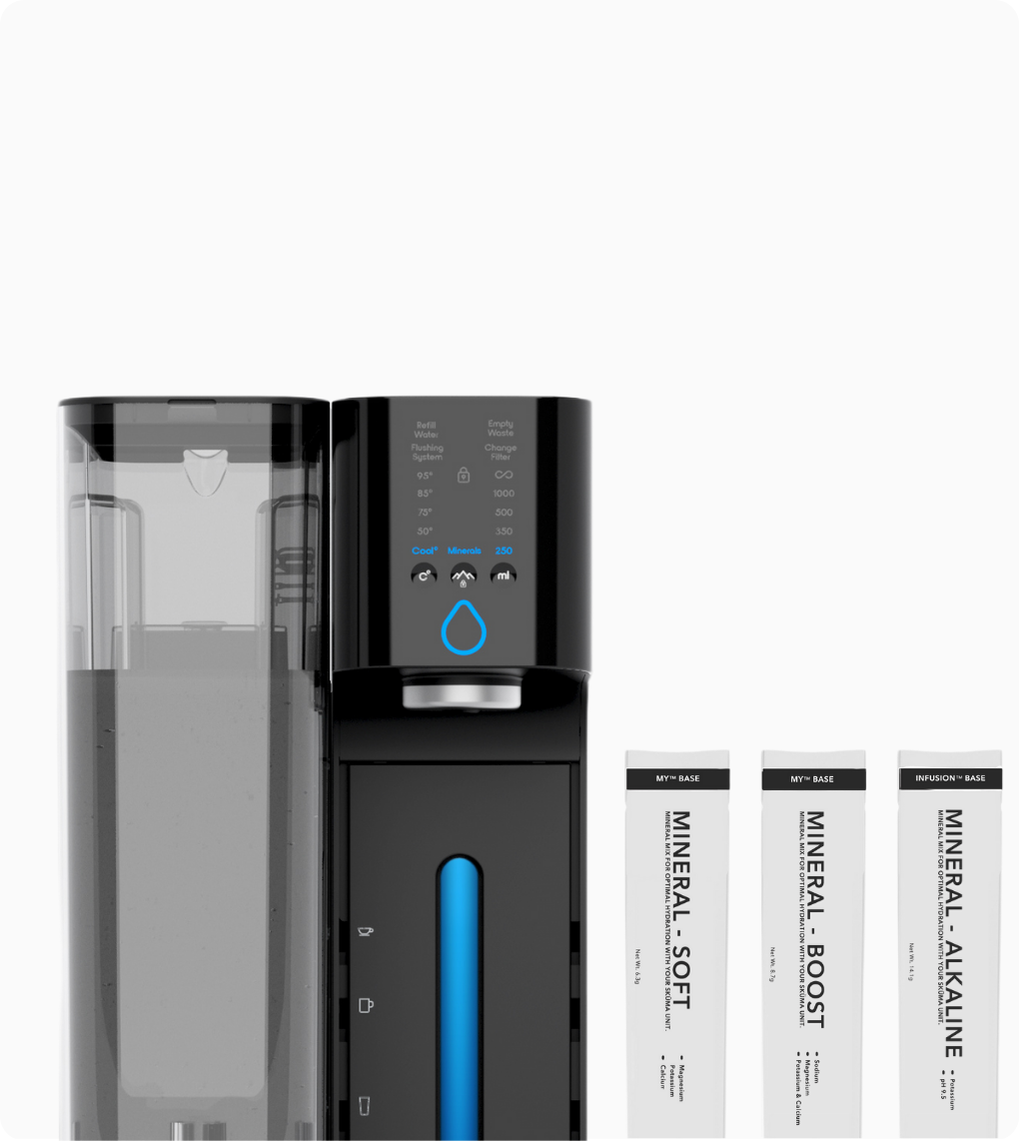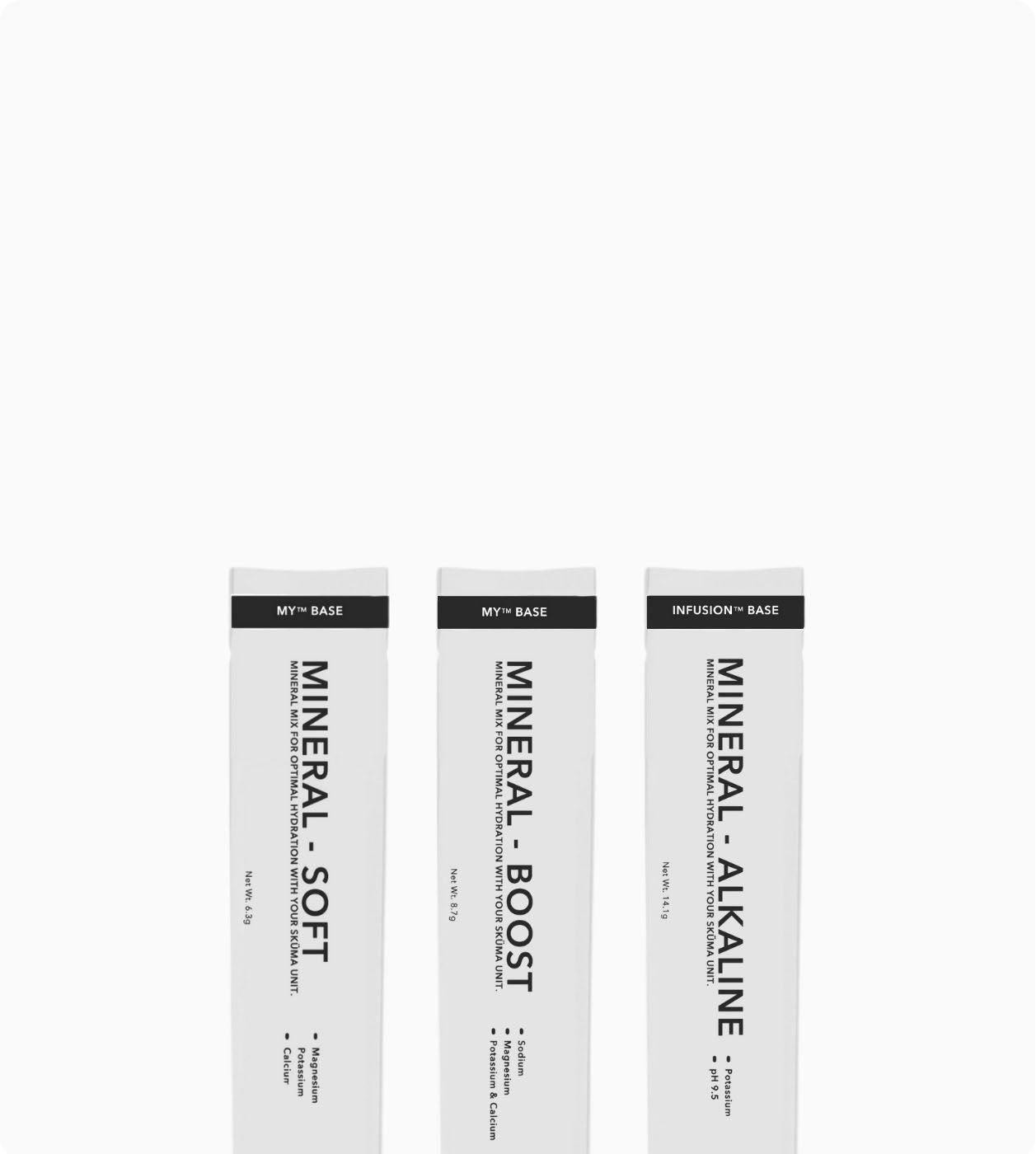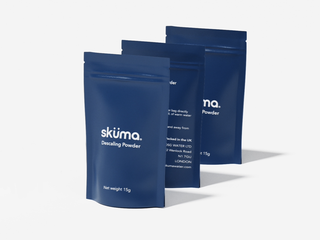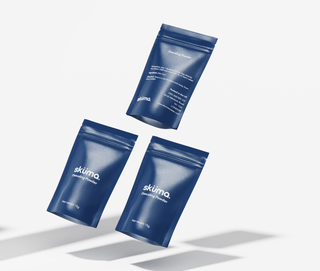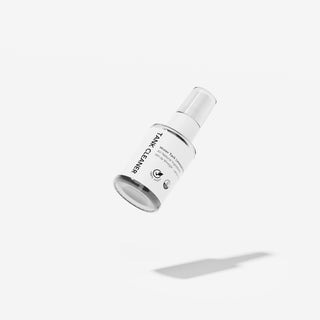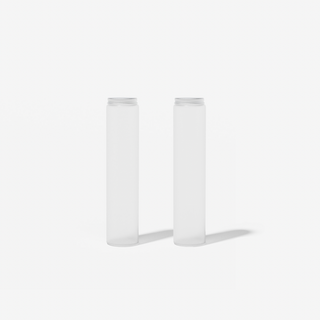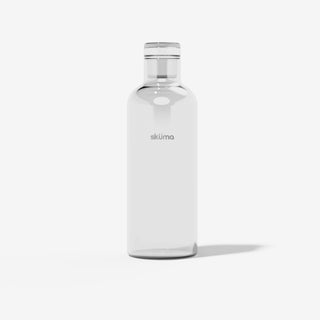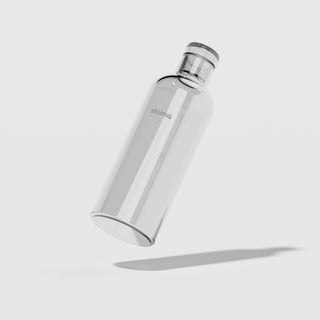In a recent anonymous survey of over 300 Sküma users, 84% reported drinking more water within the first 90 days of using the Sküma Health System. The increase wasn’t marginal, it averaged out to an additional 0.7 liters per day, according to both our internal tracking and customer-reported data.
That’s not just a behavioral shift. It’s a substantial physiological upgrade.

Sküma Users Drink More Water. Consistently
Our system was designed with a simple goal: make drinking high-quality water effortless and enjoyable. And the data shows that it’s working. Based on reported increases:
- +0.7 liters/day on average
- +21 liters/month
- +255 liters/year
For context, that’s the equivalent of nearly 128 extra bottles of water per person per year—without any added effort or deliberate tracking. Just the result of giving people better-tasting, functional water, always available when they need it.
Why Sküma Increases Hydration
The surveyed sample mentioned recurrently one main reason. The taste of the water. The Sküma Health System combines three key technologies:
- Purification: Removes pollutants like heavy metals, chlorine, PFAS, and microplastics using a high-performance filtration system.
- Remineralisation: Adds back essential minerals—magnesium, calcium, potassium—that improve both taste and physiological function.
- Functional Infusions: Offers targeted blends (Hydration, Gut Health, Immunity) that align water intake with specific wellness outcomes.
These upgrades don’t just clean the water, they make it something your body wants more of.

What the Science Says
Independent research supports this behavioral trend. People don’t just drink more water because they’re told to—they do it when the water is palatable, functional, and consistently available.
1. Taste Drives Consumption
“Palatability significantly influences fluid intake. Improved taste through mineral content can lead to increased voluntary hydration.”
— Institute of Medicine (2005)
2. Electrolytes Enhance Absorption
“Electrolyte-enriched water is more effective than plain water at maintaining fluid balance.”
— Sawka et al. (2005), Medicine & Science in Sports & Exercise
3. Minerals Support Long-Term Health
“Magnesium and calcium in drinking water may have a protective effect against cardiovascular disease and support digestive functions.”
— WHO (2009)
The Long-Term Benefits of Improved Hydration
Even a small increase in daily water intake leads to measurable improvements in health. Here’s what long-term hydration does, backed by clinical research:
Cognitive Function
Just 1–2% dehydration can impair memory, concentration, and mood.
— Popkin et al. (2010), Nutrition Reviews
Digestive Health
Hydration supports optimal digestion and nutrient absorption, reducing the likelihood of constipation and digestive discomfort.
Physical Performance
Dehydration leads to drops in strength, endurance, and recovery.
— Maughan & Shirreffs (2010), Scandinavian Journal of Medicine & Science in Sports
Kidney Function
Water supports filtration and detoxification, reducing the risk of kidney stones and chronic kidney disease.
Immune Resilience
Hydration maintains mucosal barriers and lymphatic flow, both vital to immune health.
Small Habit, Big Impact
An extra 0.7 liters of water per day may not sound dramatic—but over a year, it adds up to more than 250 extra liters. That’s not from willpower or strict routines. That’s just the result of making water better.
When hydration becomes effortless, people change without even trying. That’s what Sküma is built for.
—————


